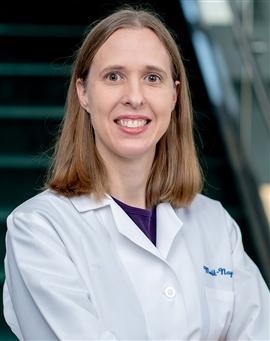Research descriptions
Lay description
Rheumatoid arthritis (RA) is the most commonly diagnosed autoimmune disorder, affecting approximately 1.3 million people in the U.S. Like other autoimmune diseases, in RA the body’s own immune system turns against itself. Antibodies, which normally help fight off bacteria and viruses, instead attack the body’s own joints, leading to the painful destruction of cartilage and bone. Swelling of joints and severe joint pain are characteristics of this debilitating disease.
There are several different types of drug therapies for RA, but none are fully effective and many are associated with serious side effects, including susceptibility to viruses and other pathogens, infection, and even cancer. New drugs and combination therapies for RA are urgently needed.
Dr. Merlo is a research assistant professor in the laboratory of LIMR Associate Professor Laura Mandik-Nayak, PhD. Drs. Mandik-Nayak and Merlo, along with their collaborators, are working to uncover the role of the enzyme indoleamine 2,3-dioxygenase 2 (IDO2) in the development and maintenance of autoimmune diseases. Together, they have discovered that IDO2 promotes inflammation in preclinical models of RA. This knowledge has led the research team to consider IDO2 as a potential therapeutic target for autoimmune disease. By blocking this enzyme, it may be possible to reduce the development of RA, and their team has recently begun to characterize novel anti-IDO2 treatments for arthritis.
Scientific description
Dr. Merlo’s most recent research has focused on understanding the contribution of the enzymes of the IDO pathway, IDO1 and IDO2, to the autoimmune response. Along with Dr. Mandik-Nayak and their collaborators, they have used genetic knockout mouse models of the individual components of the IDO pathway to separate the role of these two enzymes (IDO1 and IDO2) in mediating autoimmune arthritis.
Their work has demonstrated that it is IDO2, not IDO1, that acts as a pro-inflammatory mediator of arthritis. They have also found that IDO2 contributes to both B and T cell functions, but that the effect is T-cell extrinsic.
Recent work has conclusively established a B-cell intrinsic role for IDO2 in the pathogenesis of autoimmunity, with B cells both necessary and sufficient to support robust arthritis development as well as other inflammatory responses. Current work focuses on how IDO2 expression by B cells affects autoimmunity by supporting the cross talk between autoreactive T and B cells.
Having defined IDO2 as a critical mediator of autoimmune disease, they have begun to identify potential therapies specifically targeting IDO2 as a treatment for arthritis in preclinical models, including characterization of a novel anti-IDO2 monoclonal antibody that can be successfully applied as a therapeutic to reduce arthritis symptoms. By acting to suppress production of autoantibodies at an early stage, anti-IDO2 therapies have the potential to improve the efficacy of existing treatments, including B cell-depletion therapies and immunosuppressive agents. Their research program provides critical preclinical characterization of anti-IDO2 treatments necessary for translation to human RA therapy.

